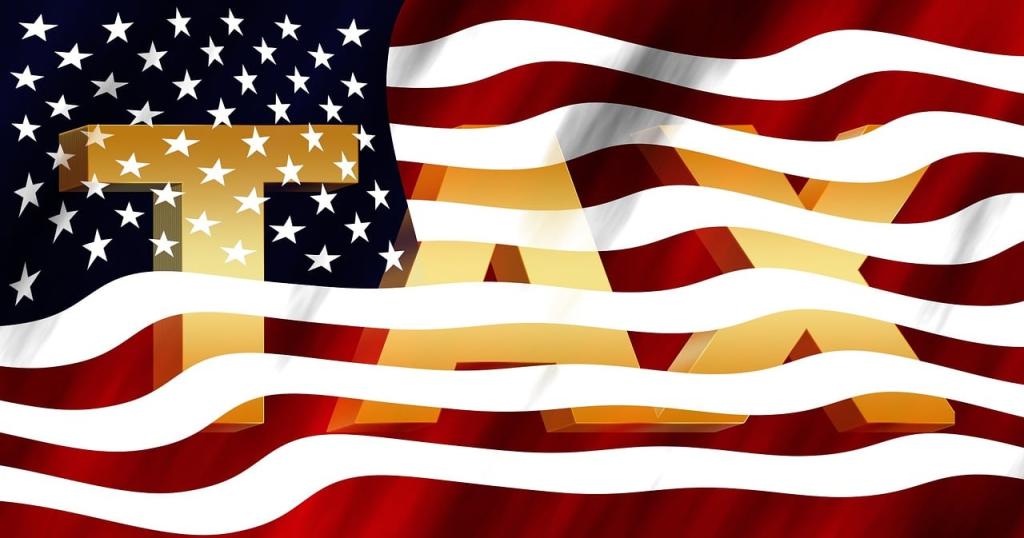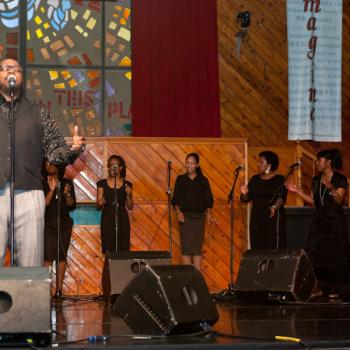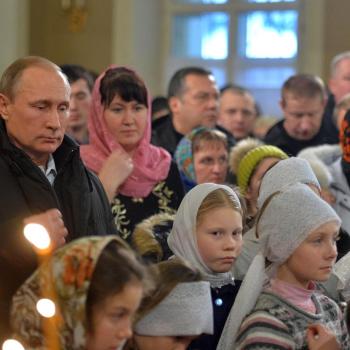
Many should – but there’s a problem
While millions of Americans scramble to file their 2022 federal income returns by April 18, one group can relax. Faith organizations and charities don’t pay federal, state or local taxes on donations, gifts and other unearned income unless they become overtly political. Unfortunately, many churches bend federal tax law to the breaking point, which begs the question: should they lose their tax-exempt status? Without question, I believe many of them should.
What Does the Law Say?
The Johnson Amendment of 1954 grants churches tax-exempt status but bans them from involvement in most political activities. Churches “can engage in a limited amount of lobbying (including ballot measures) and advocate for or against issues that are in the political arena,” according to the Internal Revenue Service (IRS), but they must be careful.
I’m not qualified to offer tax advice or go beyond a superficial discussion of tax law. But I can direct you to the IRS website here here. For a Tax Foundation post, What If We Taxed Churches? click here.
What’s the Problem?
Many churches obey the tax law, but some violate it without making any excuses or apologies. Meanwhile, the IRS turns a blind eye, according to the Texas Tribune.
“For nearly 70 years, federal law has barred churches from directly involving themselves in political campaigns, but the IRS has largely abdicated its enforcement responsibilities as churches have become more brazen about publicly backing candidates,” the Texas Tribune said.
Therein lies the problem.
How Do Churches Bend Federal Tax Law to the Breaking Point?
The Texas Tribune ran several articles in October and November 2022 about churches behaving badly in regard to tax law. One story reported that six days before a runoff election near Dallas, the pastor told congregants that demonic spirits were operating through members of city council. He also told them, “I got a candidate that God wants to win. I got a mayor that God wants to unseat. God wants to undo. God wants to shift the balance of power in our city.’”
The pastor obviously wanted certain candidates to win or lose, but I seriously doubt that God cared.
The Tribune pointed out that “what (the pastor) said that day in May 2021 was a violation of a long-standing federal law barring churches and nonprofits from directly or indirectly participating in political campaigns.” Read the post here.
The suburban Dallas church’s violation wasn’t an isolated situation. Over a period of two years, the Texas Tribune and a nonprofit news organization called ProPublica identified 20 churches that apparently violated federal tax law.
Violations included:
- Endorsing or speaking against candidates from the pulpit
- Telling the congregation exactly how to vote
- Personally endorsing candidates at official church functions
- Showing congregants a list of favored candidates for office
- Hosting favored candidates at official functions without also inviting their opponents
- Telling the congregation that God wants certain candidates to win or lose
- Praying from the pulpit for specific candidates to win or lose an election
Read the entire Tribune story here.
What Was the Branch Ministries Case?
Several attempts have been made to invalidate the Johnson Amendment. One major effort was a court case involving Branch Ministries in New York state.
Branch Ministries bought a series of full-page ads in several major newspapers just before the 1992 presidential election. Under the heading Christian Beware, the ads urged Christians to oppose Bill Clinton’s candidacy for president because of his stands on abortion, gays and distribution of condoms in schools. Branch Ministries received hundreds of donations from around the country in response to the ads, but Clinton won the 1992 and 1996 elections.
The ads appeared to be a blatant violation of federal tax law, and the New York Times ran a piece that said as much. The IRS learned about the ads and launched an investigation that ultimately led to revocation of the church’s tax-exempt status. The church sued, saying the IRS violated its First Amendment rights.
Slowly – very slowly — the lawsuit made its way through the courts until 2000, when the case was decided. By this time, Bill Clinton had served two terms as president and was preparing to leave office.
The U.S. Court of Appeals for the District of Columbia ruled in favor of the IRS. In its ruling, the court suggested that Branch Ministries consider creating a separate organization and political action committee if it wanted to continue its political activities while maintaining the church’s tax-exempt status.
Seems sensible. If you’re a church, either stay out of politics or create a secular organization that’s separate from your church and can legally become politically active.
How Did Trump Attack the Tax Law?
Donald Trump complained to the Christian Broadcasting Network that religious groups were afraid to endorse him in 2016 because of the Johnson Amendment. He whined that “they have taken a lot of the power away from the church.” Actually, “they” hadn’t done anything of the kind. The fact is that white evangelicals wielded immense power in the 2016 election, as 81 percent voted for Trump.
Trump carried his disdain for the Johnson Amendment into the Oval Office and claimed that he “got rid” of it within a year of becoming president. He didn’t.
What actually happened was that the House of Representatives attempted to repeal the amendment, but the Senate opposed the action and the Johnson Amendment remained law. Trump then signed an executive order in May 2017 that gave religious groups more leeway in political speech. But the order didn’t change the Johnson Amendment’s restrictions.
Consequently, the amendment remains law and applies to all tax-exempt non-profit organizations, according to the ACLU. “This effectively gives them special tax benefits and privileges that are not (available) to nonprofits that aren’t religious organizations,” the ACLU explained. “Church leaders are also completely free to support or endorse political candidates as private citizens.”
Some religious groups seem to want the tax exemption AND the ability to engage in politics. At present, those groups are apparently getting their way.
Enforce the Law or Not?
The greatest problem in regard to the Johnson Amendment may be that churches bend federal tax law to the breaking point and the IRS does nothing.
Churches don’t pay taxes, and they probably shouldn’t as long as they act like a church rather than a political action committee. But the moment they directly or indirectly step into the political arena, the IRS should treat them as they would treat any political entity.
The IRS “has rarely moved to take away a church’s tax exemption…. Only one of more than 2,000 Christian clergy deliberately challenging the law since 2008 has been audited, and none has been punished,” according to NPR.
Through its inaction, the IRS is almost encouraging churches to break the law, while also creating an uneven playing field.
No Time for Politics
Churches, synagogues and mosques are – according to the government and tradition – separate from political activities. When we use them for their intended purposes, there is no time for politics.
My faith — Protestant Christianity — gives God very little time as it is. We dedicate a couple of hours to the Almighty on Sunday mornings, and in some denominations, another hour on Sunday evenings. Some churches hold prayer meetings or Bible study on Wednesday evenings, and some may offer additional Bible study at other times. That’s roughly five hours per week. It isn’t much.
When pastors interject politics into their sermons, they take away what little time Christians devote to God.
I go to church to hear God’s word and learn about the Bible. I’m not interested in hearing a pastor’s political opinions in lieu of a religious sermon. I would either tune out the sermon or walk out the church door. If I do have an interest in how a pastor votes, I can have that conversation with him or her over a cup of coffee in the local coffee house.














